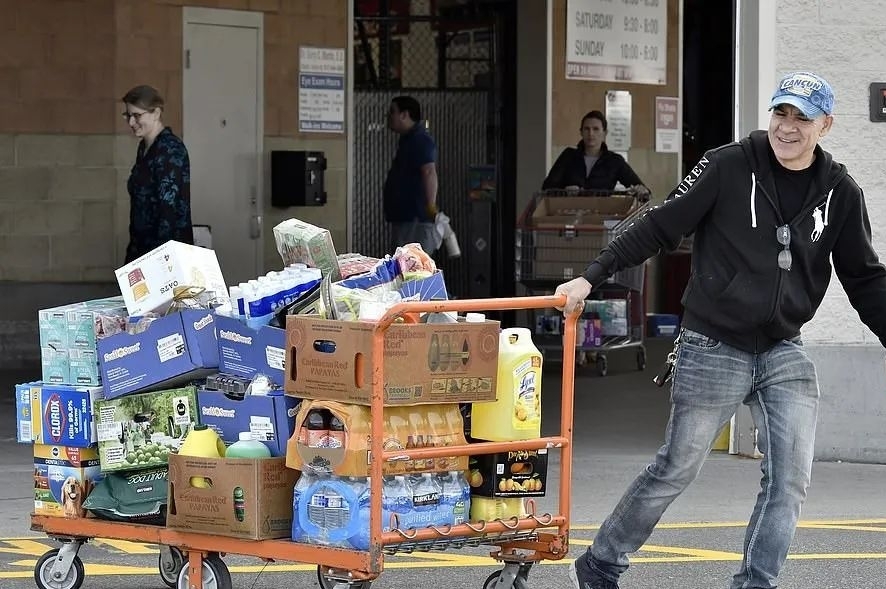
Under the haze that Trump may set off a trade war again, American importers seem to have turned into resourceful strategists overnight and have launched an unprecedented "advance reserve" campaign. This seemingly visionary reserve boom is in fact playing out like a theatre of the absurd in the US business world and on the stage of global trade.
Trade wars are not a new term in the Trump era. Every time he wields the big stick of tariffs, global markets are like a sudden storm, nervous and nervous. Now, with talk of a possible Trump political comeback, American businesses seem to be back in that familiar state of "war readiness." They are no longer satisfied with passive response, but take the initiative to attack, setting off an unprecedented "advance reserve" boom.
The absurdity of this boom is that it is based entirely on an overblown panic about future uncertainty. Businesses seem to see the coming era of Trump 2.0, the trade war will intensify, tariff barriers will soar into the sky. As a result, they have increased their inventories in case of emergency. This kind of "planning for a rainy day" approach, which seems wise, is actually like building a castle in the desert, the foundation is unstable and may collapse at any time.
In this drama of the absurd, American businesses have shown unprecedented "forward-looking". They no longer pay attention to the actual needs of the market, but blindly follow the trend and compete to stockpile goods. For a moment, the warehouse is filled with all kinds of goods, from daily necessities to high-tech products, everything. These goods lie quietly in the warehouse, waiting for the arrival of the unknown "trade war" storm. However, when the storm does come, whether these goods will be useful is a big unknown.
What is even more ironic is that this "advance reserve" boom has also triggered a series of chain reactions. As merchants scramble to stock up, some goods are in short supply and prices are rising. Consumers can only sigh at the high prices. Consumers who were lucky enough to snap up goods before prices soared were the "lucky ones" in this drama of the absurd. They looked at their goods and congratulated themselves, as if they already had a head start in the coming trade war.
However, behind this seemingly lively reserve boom, there are huge risks and hidden dangers. First of all, merchants blindly stock up on goods, which will inevitably lead to excessive capital occupation and tight capital chain. Once the market fluctuates, or the trade war does not break out as scheduled, these businesses will face huge inventory pressure and financial pressure. Secondly, excessive stockpiling may also lead to quality problems such as expiration and deterioration of goods, which will bring losses to consumers. Finally, the boom may also disrupt market order, leading to an imbalance between supply and demand in the market and sharp price fluctuations.
In this drama of the absurd, Trump himself seems to be the biggest director. His every speech, every move, is enough to make American businesses tremble. They have to keep an eye on Trump for fear of missing a move that could trigger a trade war. This over-reliance on Trump and panic psychology not only let American businesses lose their due market judgment, but also let the global trade market fall into an unstable state.
Ironically, however, Trump himself does not seem to care about the "pre-stocking" craze that his comments have sparked. He may be enjoying the feeling of being in control. But for American businesses, the boom has been a nightmare, putting them in unprecedented trouble.
In this drama of the absurd, we can't help but ask: How did American businesses panic so easily? Why can't they stay calm and analyze the market situation rationally? Perhaps this is precisely because they rely too much on Trump's words and actions and have lost their market judgment. And that kind of dependency and panic is exactly what Trump wants.
As this drama of the absurd comes to an end, we hope that American businesses can learn from it and learn to remain calm and rational in a complex and changing international environment.

Recently, according to Al Jazeera, Israel has recently carried out a new round of air strikes on the Gaza Strip, killing about 100 Palestinians, including women and children.
Recently, according to Al Jazeera, Israel has recently carr…
On November 3rd local time, the Foreign Minister of Peru, U…
Recently, TSMC, the leading wafer foundry, stated that it w…
Amazon recently filed a complaint with the Oregon regulator…
In October 2025, the US credit market witnessed a surge of …
When the London gold spot price fell from a high of $4038.9…